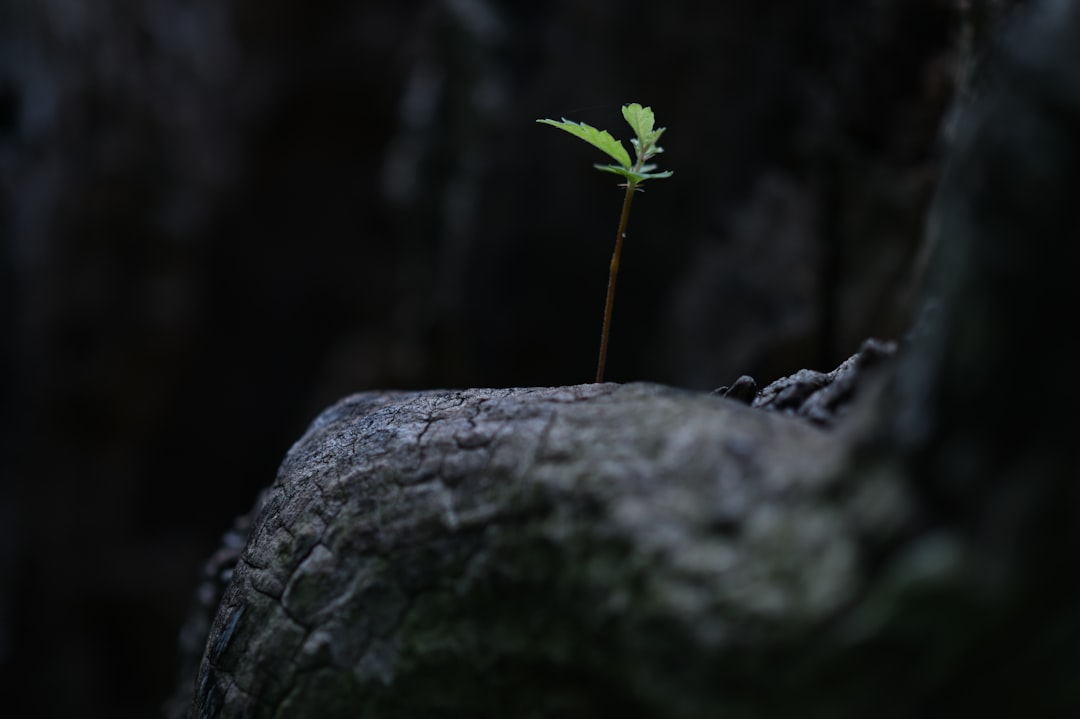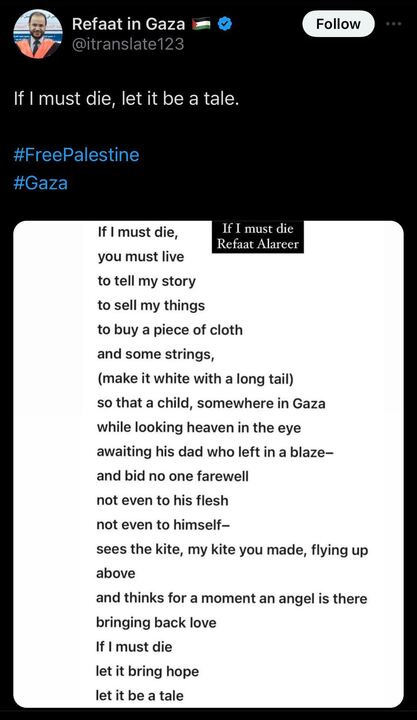Don't Retreat From The Horror
Against self-care. For community, liberation, and struggle.
The other day I saw someone I respect say that had glanced at the headlines in the morning, and it was going to be another day of video games and zoning out. They said that they couldn’t bear to interact with the news and the world that day. And I get it, I really do. My last newsletter was about struggling with hope, and that struggle hasn’t gone away. But I feel an urgent need to advocate against burying your head in the sand, and even more so against burying ourselves in softness and comfort in this moment. On the highest level we need to reject the idea that “rest is revolution.” There is a kernel of truth to it, but it is fundamentally misguided and harmful to the movement for long-term, systemic change.
Particularly at the moment, where Gazans are being stripped and rounded up and nowhere in the besieged and bombarded territory is safe, I implore you to not retreat into comfort and distraction. I am not against taking breaks. I am not against rest. I am not against naps or spa days or video games. I would not function well, and in fact I do not function well, when I fail to meditate in the morning and make a habit of ignoring my spiritual routine. The issue is not any of these practices in and of themselves, as with many things it’s a matter of how we engage with these tools, and what broader lifestyle and political approach we pursue. Today I write to oppose not the idea of self-care, but to oppose the idea that treating ourselves is a revolutionary act, and even more so to oppose the idea that self-care is the revolution. Especially in a moment like the one we’re in right now.
We all need to step back from the barrage of news and the barrage of social media at times. I’m sure some of you have taken indefinite leaves of absence from the website formerly known as Twitter. But this is about something much larger. Over the last several years we’ve been sold, in multiple ways, the idea that self-care is some sort of radical act. And at times saying no to a boss, or saying no to the culture that tells us productivity defines our worth, is a bold step. But in and of itself these acts cannot be called revolutionary, especially when the way they’re framed has increasingly come to look like spending money. The narrative of self-care, which initially was about boundaries and rest, has shifted over time to look more like paying for treats and certain luxuries. And not only does that strip much of what radicality was initially contained in the idea, it also makes these acts of caring for ourselves less accessible to most people.
In fact, we should be clear that for tons of working-class people, the concept of self-care was inaccessible to begin with. For those without paid days off, for those who have to work two jobs, for those who have to run to their kids after work, the initial idea was already often out of reach. Once more, that doesn’t mean people who can access it shouldn’t take advantage of their circumstances and benefits and take a day off to unplug, it just means we should keep perspective as we do so. In particular, it means that we should not listen to those who tell us that rest is the revolution. After the revolution I’m sure there will be infinitely more time for rest, but part of the revolution itself is unions, organizing, striking and walking out of work collectively, fighting for those who get no days off. Building up alternative organizations and systems that will, in time, allow us all to rest more.
The key distinction, for me, is that the actions which truly move us towards real liberation, both political liberation the economic freedom that would allow us to create our own schedules and collectively control our own lives, must be engaged in collectively. Not only have we been sold the idea that we can take care of ourselves alone, by ourselves, we’ve also been sold the lie that we can get free and “no longer work for the man” by being our own boss, by being entrepreneurs. And we may gain some measure of economic stability and freedom if we become one of the relatively few start-up founders to make it big. But even still, we’d be operating within the larger system that forces us to compete and hustle and grind just to make it by. We’d still be a far cry from real freedom for ourselves, and even further from anything resembling collective liberation for our neighbors, communities, and the world.
What we need much more than relaxation, more than comfort, is each other. Especially in this moment, we need each other. We need solidarity and struggle and a movement that pushes for peace and real justice. We also need to be sharp sometimes, we need to be militant in our organizing and we need to refuse to back down. This is one of those moments. There is, broadly, a great need for long-term organizing and the marathon that entails. And we are in a pivotal moment in that marathon, a moment where we can’t slow or let up. As Jewish Voice for Peace recently said, “We owe Gaza endurance.” I know it’s tough; I hit a wall this past week after the bombardment resumed. I hit another today seeing people stripped and lined up in a manner that is dehumanizing beyond words. But Gazans can’t let up. What keeps me moving is knowing that they must continue to put one foot in front of the other if they are to survive. Over here most of us have a task that's difficult, yet immeasurably easier.

So no matter how hard it feels to get up, to act, I implore you to keep going. Keep demanding a permanent ceasefire now. Keep organizing. And keep resisting the pull of retreat, of checking out, of escape. We all must take breaks in various ways, but that is different than disconnecting from the struggle. That is different than gently deceiving ourselves into thinking that our luxury of rest is itself the revolution. Nothing sort of dismantling the systems and projects that commit and enable this genocide, that devalue life itself, and replacing them with systems that uplift life, sustain life, sustain us and the world around us is the revolution. And there are moments of rest in that process, there must be, but we must see them in the larger context of creating the arc that bends towards justice, of how we ourselves can be a part of that arc. Right now, in this moment, we see both how far we are from transforming the world, and how deeply and painfully millions and millions of people want the radical change we need. So please, remain present in this moment, remain here with us in the work of organizing and resisting.
As I was about to send this to you, I learned that one of the Palestinian voices that rang out the loudest and clearest these last two months, one of the people who showed us and told us what was happening in Gaza, was murdered by the Israeli army. Here are some of the words he wrote, when he knew he might be be dealt an early death by the forces occupying and invading his home. What more can be said. Here are the words of Dr. Refaat Alareer. Don’t turn away. Keep going.
Links to take action:
SupportPalestine Action: https://www.palestineaction.org
Dissenters against the War Machine: https://wearedissenters.org
Apply pressure for a ceasefire now: https://ceasefiretoday.com/
Take action with Jewish Voice for Peace: https://www.jewishvoiceforpeace.org
Take action with the Palestinian Youth Movement: https://palestinianyouthmovement.com/
Support Boycots, Divestmest, and Sanctions: https://bdsmovement.net/




goddamn I was just having this very conversation with a friend. WE ARE WITH YOU. Solidarity Comrades. Moving words in this post. We will not look away.
I get it, Joshua, and I'm so sad that the person with that clear voice was killed.
Self care, in the form of a rest, a conversation with a friend, or a nap is essential to prevent burnout but I agree, we have to keep going.
This genocide happening before our very eyes in unacceptable.